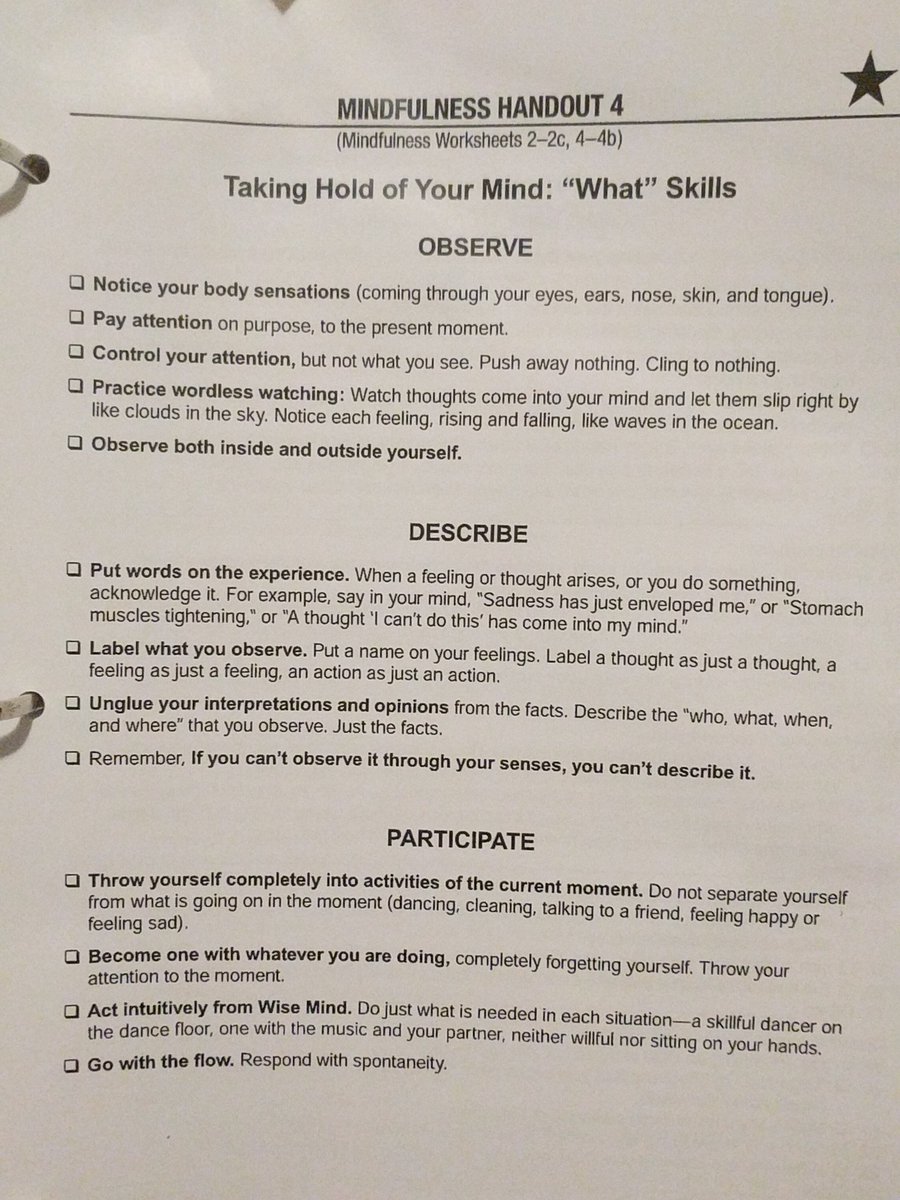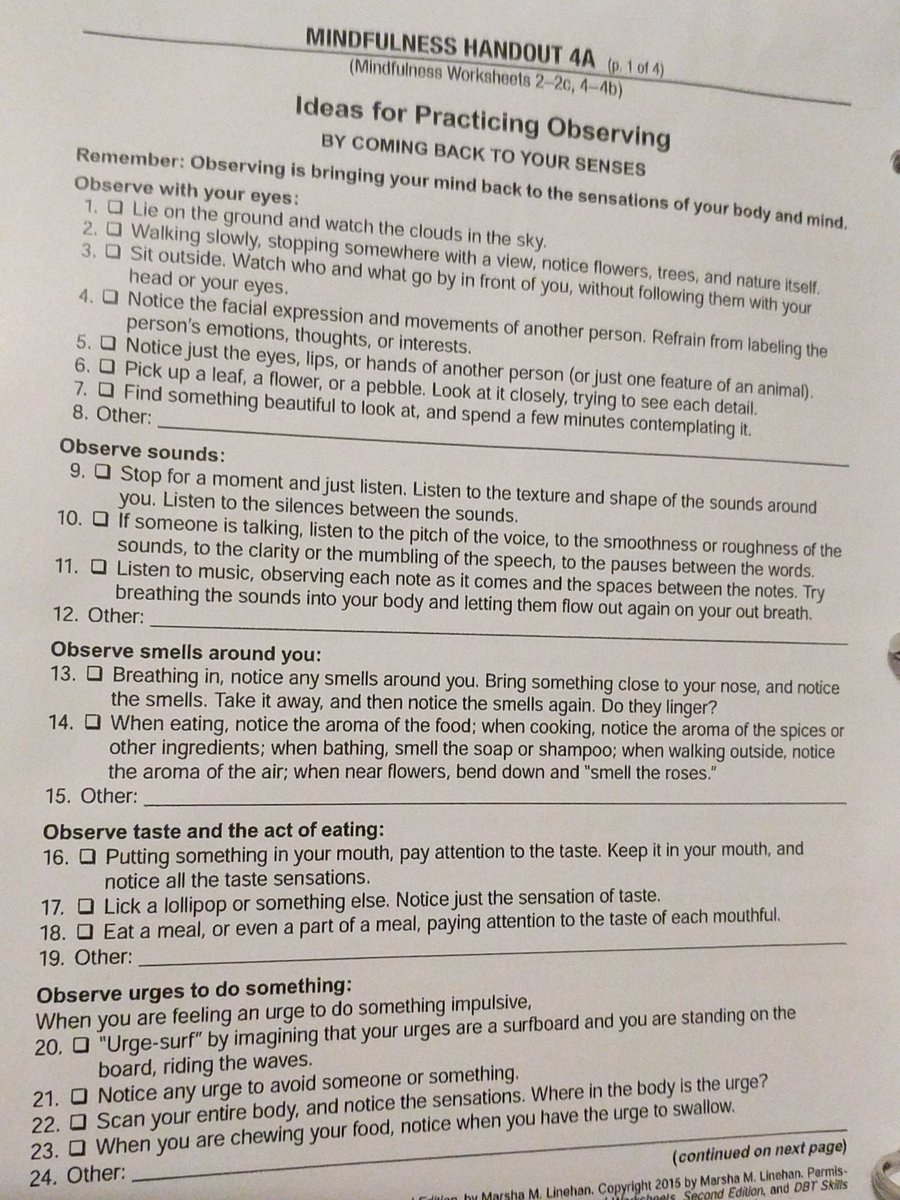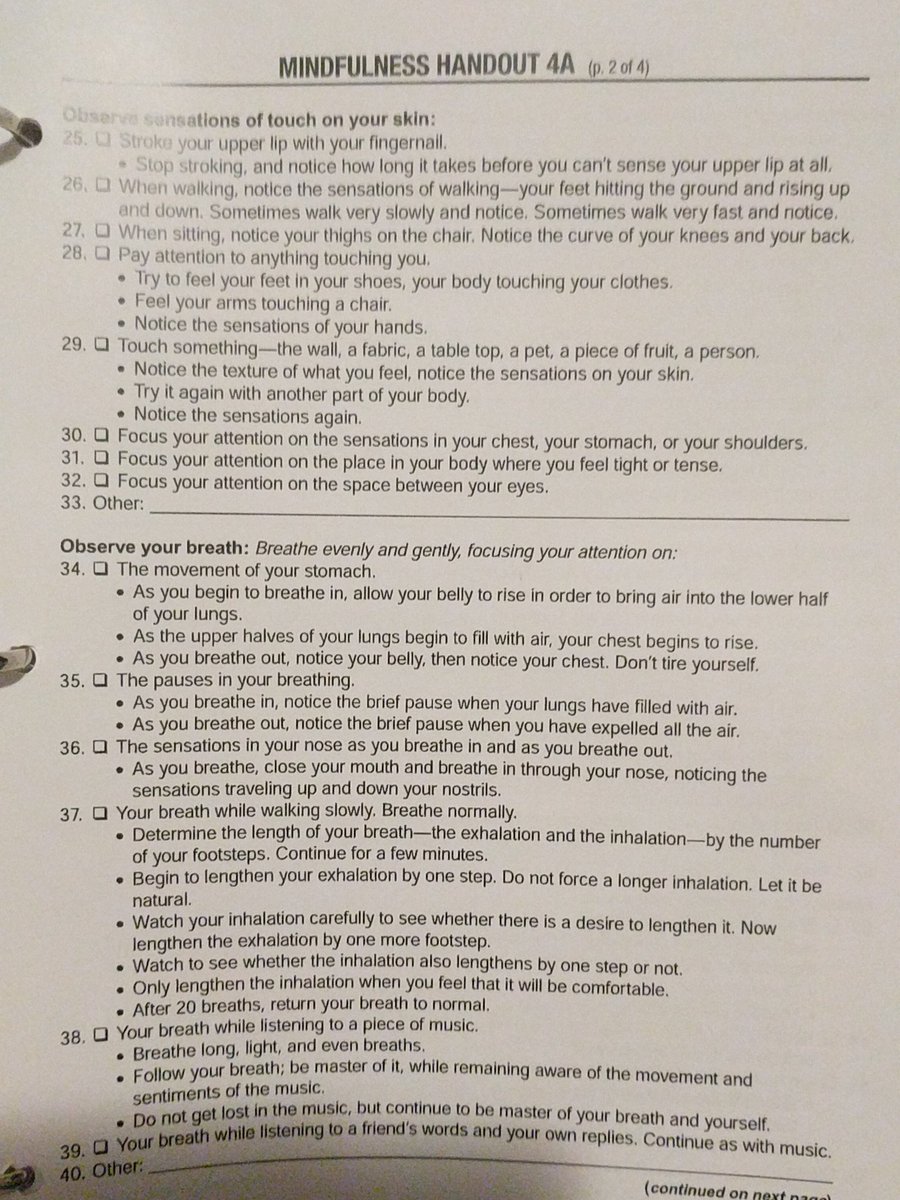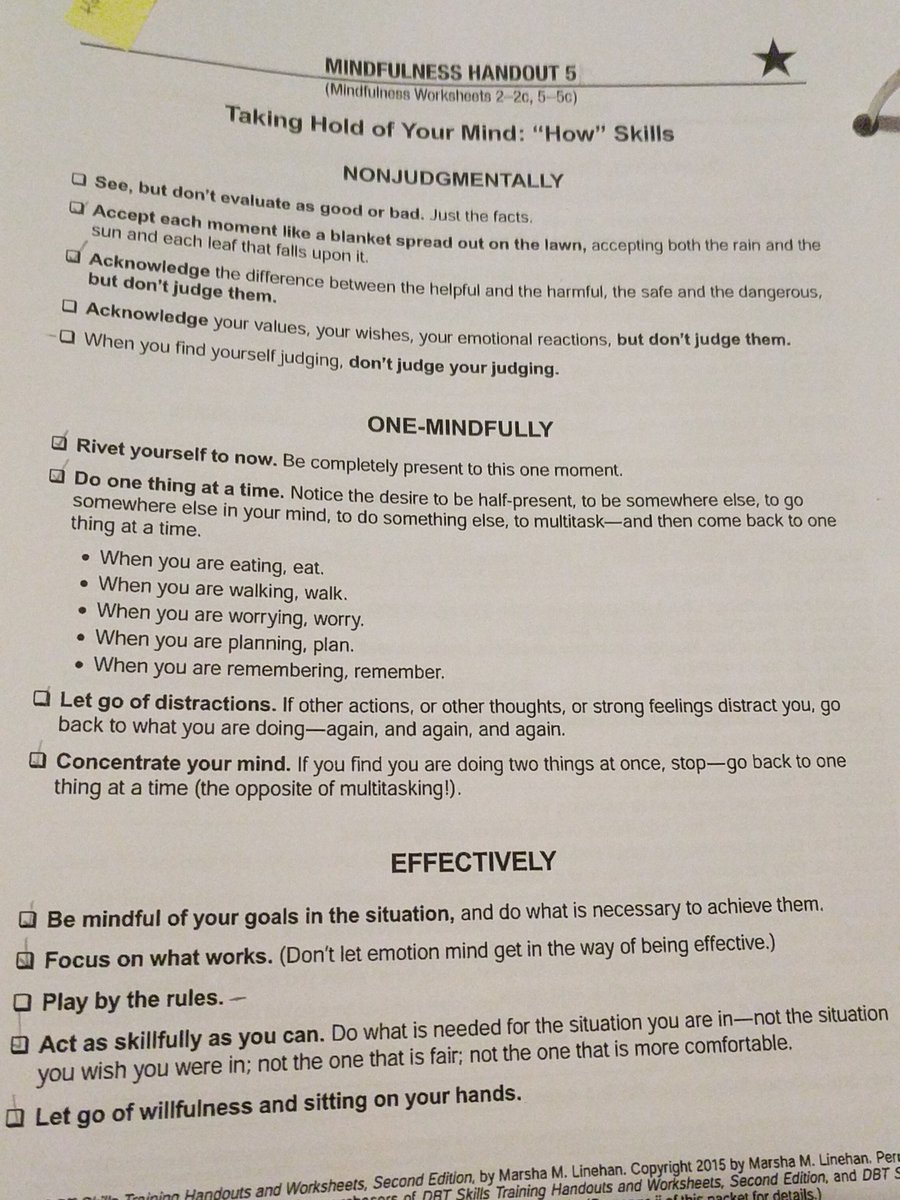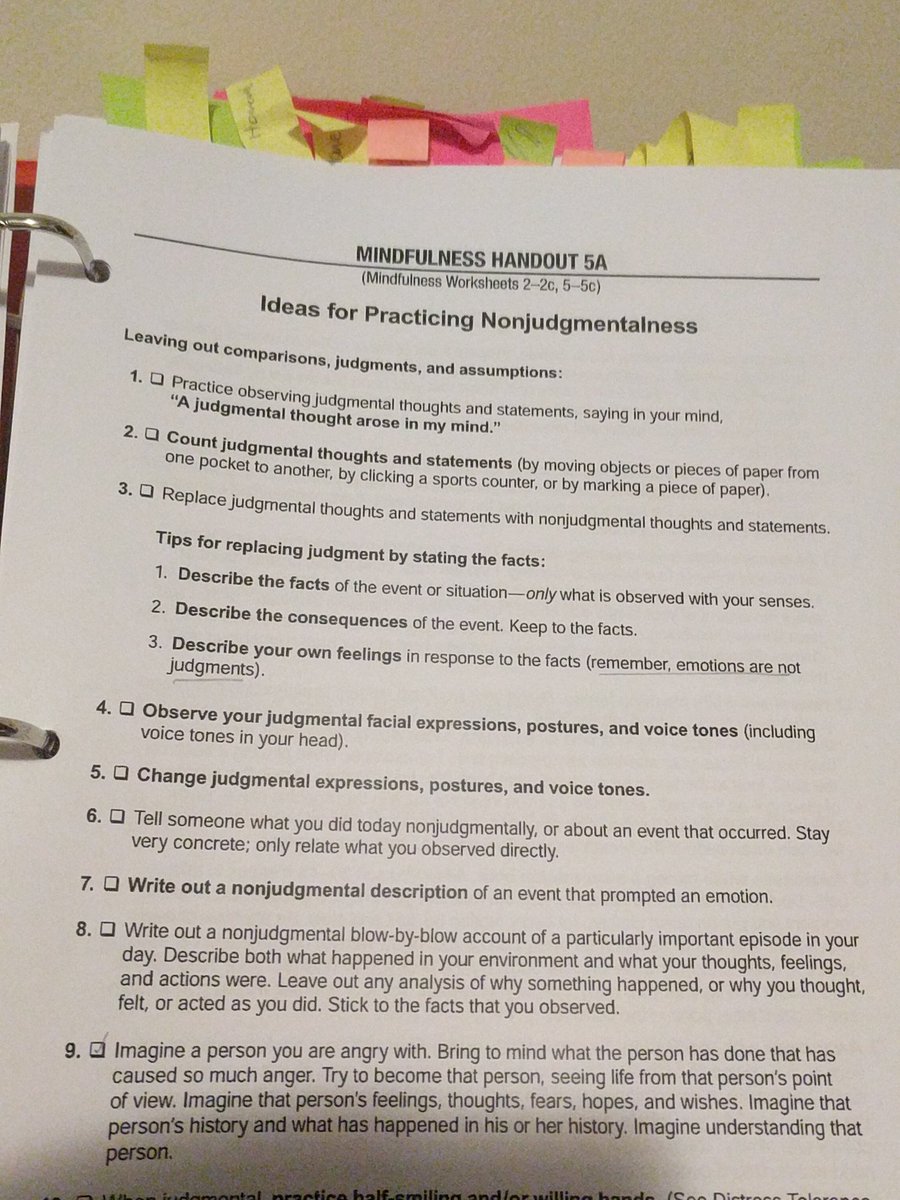Australians, this time of year is extremely difficult for many people. A thread (in progress) for contacts;
000 if life is in danger.
1300 659 467 : National Suicide Call Back Service (15+)
1800 55 1800 : Kid& #39;s Helpline (5-25yrs)
1800 184 527 : QLife (LGBTQI folks)
000 if life is in danger.
1300 659 467 : National Suicide Call Back Service (15+)
1800 55 1800 : Kid& #39;s Helpline (5-25yrs)
1800 184 527 : QLife (LGBTQI folks)
24/7. You can call for you, or someone you know. These are state specific.
13 14 65 : SA
1300 651 251 : VIC Suicide Line
1800 011 511 : NSW
1800 629 354 : ACT
1800 682 288 : NT
1800 522 002: WA
1800 332 388: TAS
13 14 65 : SA
1300 651 251 : VIC Suicide Line
1800 011 511 : NSW
1800 629 354 : ACT
1800 682 288 : NT
1800 522 002: WA
1800 332 388: TAS
Now I know in SA, from experience, that calling the triage number puts you in contact with a trained mental health professional. They will assess your current state, take some history and figure out what you need to be safe.
This may involve providing you with strategies, talking to you until you feel a little calmer, and then negotiating with you about what comes next.
One time, we chatted.
Another, they came to my house, and spoke to me, and then decided it was safest for me to go to hospital.
One time, we chatted.
Another, they came to my house, and spoke to me, and then decided it was safest for me to go to hospital.
When I had a particularly difficult week - the anniversary of an attempt, my psychologist contacted them for me, and then they called me.
We arranged a schedule. They called me each day, but it was ok for me to call them if I needed.
We organised a home visit.
We arranged a schedule. They called me each day, but it was ok for me to call them if I needed.
We organised a home visit.
Two people came to my house. We spoke about my distress, my coping methods, and formulated a plan to try and keep me safe. After 8 days of contact, I decided (they agreed) I was once more safe.
I can& #39;t vouch for every state, but that& #39;s how it worked here.
I can& #39;t vouch for every state, but that& #39;s how it worked here.
I know it can be really scary to reach out.
You might feel like you& #39;re wasting time.
You might feel that it isn& #39;t that serious.
You might feel there are other people more deserving.
You are deserving of help.
You are not a burden.
People want you to live.
I want you to live.
You might feel like you& #39;re wasting time.
You might feel that it isn& #39;t that serious.
You might feel there are other people more deserving.
You are deserving of help.
You are not a burden.
People want you to live.
I want you to live.
I can& #39;t guarantee that it will get better.
I can& #39;t guarantee that these feelings won& #39;t return.
I can tell you that there are ways you can try to make it through, and that you deserve that opportunity.
You matter.
I can& #39;t guarantee that these feelings won& #39;t return.
I can tell you that there are ways you can try to make it through, and that you deserve that opportunity.
You matter.
Some warning signs;
You might notice the urge to disconnect from everyone.
You might feel like a burden.
You might wish you weren& #39;t here.
You might start making plans as to how to not be here.
If you start making plans, please reach out.
The world is better with you here.
You might notice the urge to disconnect from everyone.
You might feel like a burden.
You might wish you weren& #39;t here.
You might start making plans as to how to not be here.
If you start making plans, please reach out.
The world is better with you here.
There are lots of ways to combat these feelings and thoughts. Some will work for you, some won& #39;t.
For me, right now, writing this thread based on my lived experience is a way to help me.
If I maybe help someone else, if I can do some good, I can maybe hold on until this passes.
For me, right now, writing this thread based on my lived experience is a way to help me.
If I maybe help someone else, if I can do some good, I can maybe hold on until this passes.
Ok, so people have found this helpful, so I& #39;m going to add some more tips.
Kindness.
It can be really tough to be kind to yourself. For some of us we speak to ourselves far more harshly than we would anyone else.
It is really important to try to soften that urge.
Kindness.
It can be really tough to be kind to yourself. For some of us we speak to ourselves far more harshly than we would anyone else.
It is really important to try to soften that urge.
Some people tell that critical voice to go away. Some people sing it& #39;s words back to it in a silly voice.
For me, I try to disengage. "No, I& #39;m not talking to you."
And I try to send it away. I visualise it, all twisted shadow yanked away on a silver chain, to my psychologist.
For me, I try to disengage. "No, I& #39;m not talking to you."
And I try to send it away. I visualise it, all twisted shadow yanked away on a silver chain, to my psychologist.
Each time it returns, welling up inside of me, I repeat the process. Imagining it trapped inside of her office behind a barrier.
It doesn& #39;t always work, but it does sometimes.
I build on that visualisation when I get stuck ruminating about problems I can& #39;t (yet) solve.
It doesn& #39;t always work, but it does sometimes.
I build on that visualisation when I get stuck ruminating about problems I can& #39;t (yet) solve.
"I& #39;m not going to think about this right now. I don& #39;t know the answer, and that& #39;s ok."
I imagine those thoughts sliding inside a big, segmented, shimmery silver-white dome.
I will think about them, and talk about them, but only when it& #39;s safe for me to do so, in her office.
I imagine those thoughts sliding inside a big, segmented, shimmery silver-white dome.
I will think about them, and talk about them, but only when it& #39;s safe for me to do so, in her office.
Next, judgement.
Hand in hand with that critical voice, is judgement.
I should be stronger than this.
I should be over this.
I shouldn& #39;t let this bother me.
I should know the answers.
I should be better.
Hand in hand with that critical voice, is judgement.
I should be stronger than this.
I should be over this.
I shouldn& #39;t let this bother me.
I should know the answers.
I should be better.
We are human, we make mistakes. We make choices that aren& #39;t ideal, or the most effective.
Sometimes we will do things that harm us more than they help - because these familiar things are what helped us survive.
It& #39;s ok. You are doing the best you can with the tools you have.
Sometimes we will do things that harm us more than they help - because these familiar things are what helped us survive.
It& #39;s ok. You are doing the best you can with the tools you have.
It takes time, resources, effort, and lots of repetition to learn new skills, and we don& #39;t always have the capacity to apply them.
Especially not when we are in stressful situations and emotionally vulnerable.
I would ask that you try for harm minimisation.
Especially not when we are in stressful situations and emotionally vulnerable.
I would ask that you try for harm minimisation.
The best way to do this is to plan ahead.
What will some of your challenges be?
How might you feel?
What are ways you could navigate these feelings?
Is there someone (somewhere, twitter?) You can vent and reach out?
What are ways you can look after yourself?
What will some of your challenges be?
How might you feel?
What are ways you could navigate these feelings?
Is there someone (somewhere, twitter?) You can vent and reach out?
What are ways you can look after yourself?
I& #39;ve got an overall coping plan, but I& #39;m working on an updated and specific one to help me get through the next couple of weeks.
I& #39;m lucky in that I know a lot of my triggers, and ways to navigate them.
It& #39;s ok if you don& #39;t know yours, but it can be helpful to plan for safety.
I& #39;m lucky in that I know a lot of my triggers, and ways to navigate them.
It& #39;s ok if you don& #39;t know yours, but it can be helpful to plan for safety.
Make an agreement with yourself as to when you will call one of the numbers I listed, for help.
Or if you& #39;re really worried - call them now. Call them and explain and they may be able to help you with strategies specific for you.
It& #39;s ok to need help.
You deserve help.
Or if you& #39;re really worried - call them now. Call them and explain and they may be able to help you with strategies specific for you.
It& #39;s ok to need help.
You deserve help.
Being prepared for a crisis can really help.
I often try to white knuckle my way through it, and I& #39;ve found that& #39;s not really the safest option.
If you have a person you can rely on, try to talk to them about your worries, and what you think their support might look like.
 https://abs.twimg.com/emoji/v2/... draggable="false" alt="💜" title="Violettes Herz" aria-label="Emoji: Violettes Herz">
https://abs.twimg.com/emoji/v2/... draggable="false" alt="💜" title="Violettes Herz" aria-label="Emoji: Violettes Herz">
I often try to white knuckle my way through it, and I& #39;ve found that& #39;s not really the safest option.
If you have a person you can rely on, try to talk to them about your worries, and what you think their support might look like.
In terms of easily collated contacts @SuicidePrevAU has put together some great specific links in addition to the numbers in the first tweet of this thread …https://communitiesmatter.suicidepreventionaust.org/content/useful-contacts">https://communitiesmatter.suicidepreventionaust.org/content/u...
You might have noticed I didn& #39;t put Lifeline, the most commonly offered number for mental health support in Australia.
While this service is excellent for many people, I& #39;ve found it falls short for my needs.
But they may work for you, and are anonymous.
13 11 14 : Lifeline
While this service is excellent for many people, I& #39;ve found it falls short for my needs.
But they may work for you, and are anonymous.
13 11 14 : Lifeline
In the longer term, if you are struggling, I& #39;d recommend calling your local GP and asking to make an appointment for a mental health plan.
They can write you a plan and give you a referral to see a mental health professional that is subsidised by Medicare (gap is $30-$50).
They can write you a plan and give you a referral to see a mental health professional that is subsidised by Medicare (gap is $30-$50).
Sometimes, just getting perspective from someone can really help you. I know a really good practice in Adelaide (one for adults and one for kids) that I& #39;m happy to recommend if you DM me.
If you are 12-25 Headspace is a national service designed to help meet mental health needs of young Australians.
You can use them yourself, or contact them if you& #39;re worried about an >25 in your life.
Check out their site for more info
https://headspace.org.au"> https://headspace.org.au
You can use them yourself, or contact them if you& #39;re worried about an >25 in your life.
Check out their site for more info
https://headspace.org.au"> https://headspace.org.au
So I& #39;ve spent the past five months or so undergoing group DBT (Dialectical Behaviour Therapy). It has some strategies I& #39;ve found really useful.
The important thing with mental health techniques is that some of them feel uncomfortable, but do work. Some just aren& #39;t a fit for you.
The important thing with mental health techniques is that some of them feel uncomfortable, but do work. Some just aren& #39;t a fit for you.
That doesn& #39;t mean you are a failure. There is no one size fits all method of treatment. Some of these strategies work for me, some don& #39;t.
I& #39;ve had a hard time this year, but a really helpful thing has been the @calm app.
It has various meditation practices, guided breathing
I& #39;ve had a hard time this year, but a really helpful thing has been the @calm app.
It has various meditation practices, guided breathing
And sleep stories. Some are available free, others require subscription
Mindfulness and meditation are not a cure for trauma, or mental illness, but sometimes they can give you the space to make choices that cause you less harm. I& #39;ll include some pics of handouts from my group.
Mindfulness and meditation are not a cure for trauma, or mental illness, but sometimes they can give you the space to make choices that cause you less harm. I& #39;ll include some pics of handouts from my group.
A big concept in DBT is wise mind. This basically means being balanced. When we are distressed and emotionally dysregulated, we can bounce between one and the other and it makes it really tough to make healthy choices.
Here& #39;s a few ideas for practicing some mindfulness skills. There are plenty out there. Mindfulness is either held up as a cure all, or derided as useless, but the truth (wise mind  https://abs.twimg.com/emoji/v2/... draggable="false" alt="😉" title="Zwinkerndes Gesicht" aria-label="Emoji: Zwinkerndes Gesicht">) is somewhere in the middle.
https://abs.twimg.com/emoji/v2/... draggable="false" alt="😉" title="Zwinkerndes Gesicht" aria-label="Emoji: Zwinkerndes Gesicht">) is somewhere in the middle.
Utilising mindfulness strategies and meditating every day hasn& #39;t cured me, solved my problems, but it has reduced my suffering and lessened the actual harm I& #39;ve experienced this year. (excuse my scrawl, this is my workbook).
These are really good to practice when you are feeling "ok" and your distress isn& #39;t peaking. If they& #39;re familiar, well used tools, you& #39;ll sometimes be able to access them when you are in need.
In this picture are some specific tips for observing. Observing is really useful if you notice you& #39;re starting to get anxious, it can be a way to ground and distract yourself
And here& #39;s a few more ideas.
Now I know that when I& #39;m extremely distressed, I tend to lose access to my skills, part of why it& #39;s important to practice them regularly.
Now I know that when I& #39;m extremely distressed, I tend to lose access to my skills, part of why it& #39;s important to practice them regularly.
Mindfulness also really helps in learning to understand your body, your mind and how they are connected. When you& #39;re familiar with it, you can start to recognise your "warning signs" that things aren& #39;t quite right.
This is my work in progress one (sorry about the terrible hand writing). So for me; increased negative self-talk, isolation, denying myself good things (because I think I don& #39;t deserve them)
Interrupted sleep (Bad dreams, I wake and can& #39;t return to sleep), rumination (excessive thinking and working over the same idea in my head). Increased self-loathing, the belief I& #39;m a failure and a burden. I stop doing things.
I lose my appetite, I feel empty, hopeless and helpless. I become sensitive, to others emotions (and my often incorrect interpretations of them). I shower a lot (some people stop showering altogether).
Because I feel out of control inside, I try to exert more control on the world. This manifests as perfectionism and controlling behaviour.
At this point on the guage in that first pic, I& #39;m reaching the danger area. So the idea is to utilise other things to help, earlier.
At this point on the guage in that first pic, I& #39;m reaching the danger area. So the idea is to utilise other things to help, earlier.
A big part of mindfulness is letting go of judgements. I know, there& #39;s a lot of shortfalls in this stuff when it comes to tackling trauma and systemic issues, but applying it internally? I find challenging, but useful to try and deprive that inner critic of fuel.
Ok, so I had a pretty challenging therapy session yesterday, but we decided on a couple of strategies for me to try and really focus on over the holiday period.
When I do actually acknowledge my emotions, I can fall into a trap of creating a narrative, and getting pulled in.
When I do actually acknowledge my emotions, I can fall into a trap of creating a narrative, and getting pulled in.
I am feeling (big emotion), and then my brain launches into the reasons why I have that emotion, creates a big narrative arc around it, and then it& #39;s off to unhelpful rumination land.
Or, (feeling), then thoughts "Uhoh feelings are big and bad. Ignore. Repress."
Or, (feeling), then thoughts "Uhoh feelings are big and bad. Ignore. Repress."
Both of those are (as DBT would say) pretty ineffective ways to operate.
So my goal is "I notice I am feeling sad. It is okay that I am sad."
That& #39;s it. I use & #39;notice& #39;, to observe, to try and distance myself from being swept away by the feeling.
So my goal is "I notice I am feeling sad. It is okay that I am sad."
That& #39;s it. I use & #39;notice& #39;, to observe, to try and distance myself from being swept away by the feeling.
The "It is ok that I am sad" is designed to work on a couple of levels. One, it& #39;s validation that I& #39;m allowed to have feelings. I learnt that my emotions were & #39;bad& #39; or wrong, so this is a big thing for me. It is also acceptance of what I& #39;m feeling.
You can& #39;t change an emotion by ignoring it, or wishing it wasn& #39;t there. While some emotions can be distressing, or painful, allowing them to exist can reduce your suffering.
And emotions aren& #39;t permanent. They pass. They might return, but they pass.
Feeling feelings is tough.
And emotions aren& #39;t permanent. They pass. They might return, but they pass.
Feeling feelings is tough.
And it is definitely still a big work in progress for me, but what I have done so far in the past year has definitely helped me find ways to ease the level of distress I& #39;m experiencing.
Even if sometimes that just means holding on until the storm has passed.
Even if sometimes that just means holding on until the storm has passed.
So, a year on, I notice today that I& #39;m feeling anxious and sad, and ALSO feeling excited, and loved.
I& #39;m reminding myself that here is not there, and now is not then. That if I encounter difficult moments today, I can get through them.
You can too.
I& #39;m reminding myself that here is not there, and now is not then. That if I encounter difficult moments today, I can get through them.
You can too.
Because while things might remind us of the past, and that might hurt, and it might bring up complicated feelings and negative dialogues - we survived that past to be here today.
I know we are all doing our best to get to where we want to be, and trying to make the most of now.
I know we are all doing our best to get to where we want to be, and trying to make the most of now.
My trauma may have shaped me, but I& #39;m working really hard to make sure it& #39;s not the thing that absolutely defines me.
Be kind to you, pocketfam, and I& #39;ll do my best to try and be kind to me.
Be kind to you, pocketfam, and I& #39;ll do my best to try and be kind to me.
The numbers at the top of this thread are there, and use them if you need - you deserve help. But if it is tough, scroll through the entire thread, you might find something that helps you get through a sticky moment.
I know I just did. https://abs.twimg.com/emoji/v2/... draggable="false" alt="💜" title="Violettes Herz" aria-label="Emoji: Violettes Herz">
https://abs.twimg.com/emoji/v2/... draggable="false" alt="💜" title="Violettes Herz" aria-label="Emoji: Violettes Herz">
I know I just did.
https://coronavirus.beyondblue.org.au/?gclid=Cj0KCQjwyJn5BRDrARIsADZ9ykHhF0m4mSdvAKwoAM5gu6pSLM-y0P592T0l6_nwzzbPrk5zfce-SHYaAlptEALw_wcB
And">https://coronavirus.beyondblue.org.au/... here is a link to some coronavirus specific mental health resources.
And again, the number to call is 1800 512 348
This is a free mental health service if you& #39;re impacted by #lockdownMelbourne
And">https://coronavirus.beyondblue.org.au/... here is a link to some coronavirus specific mental health resources.
And again, the number to call is 1800 512 348
This is a free mental health service if you& #39;re impacted by #lockdownMelbourne

 Read on Twitter
Read on Twitter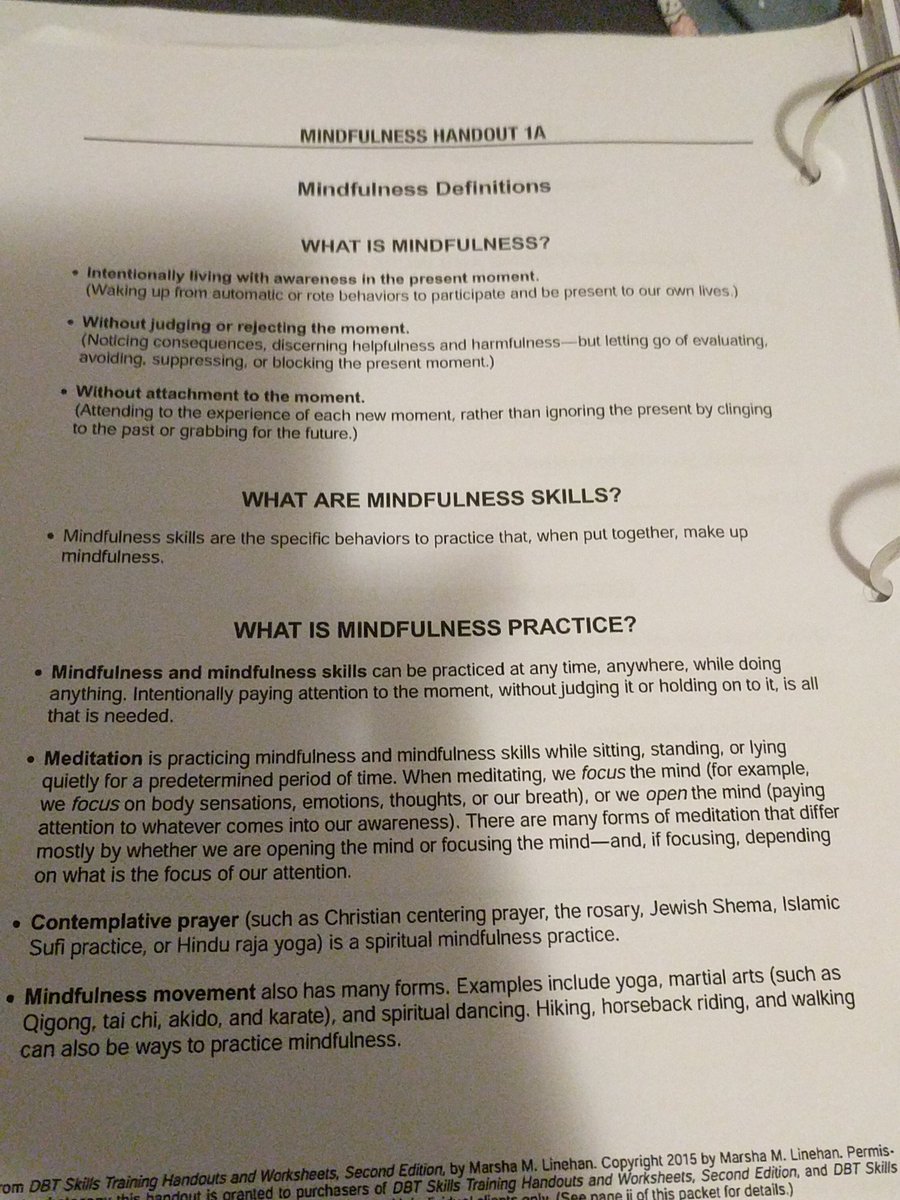
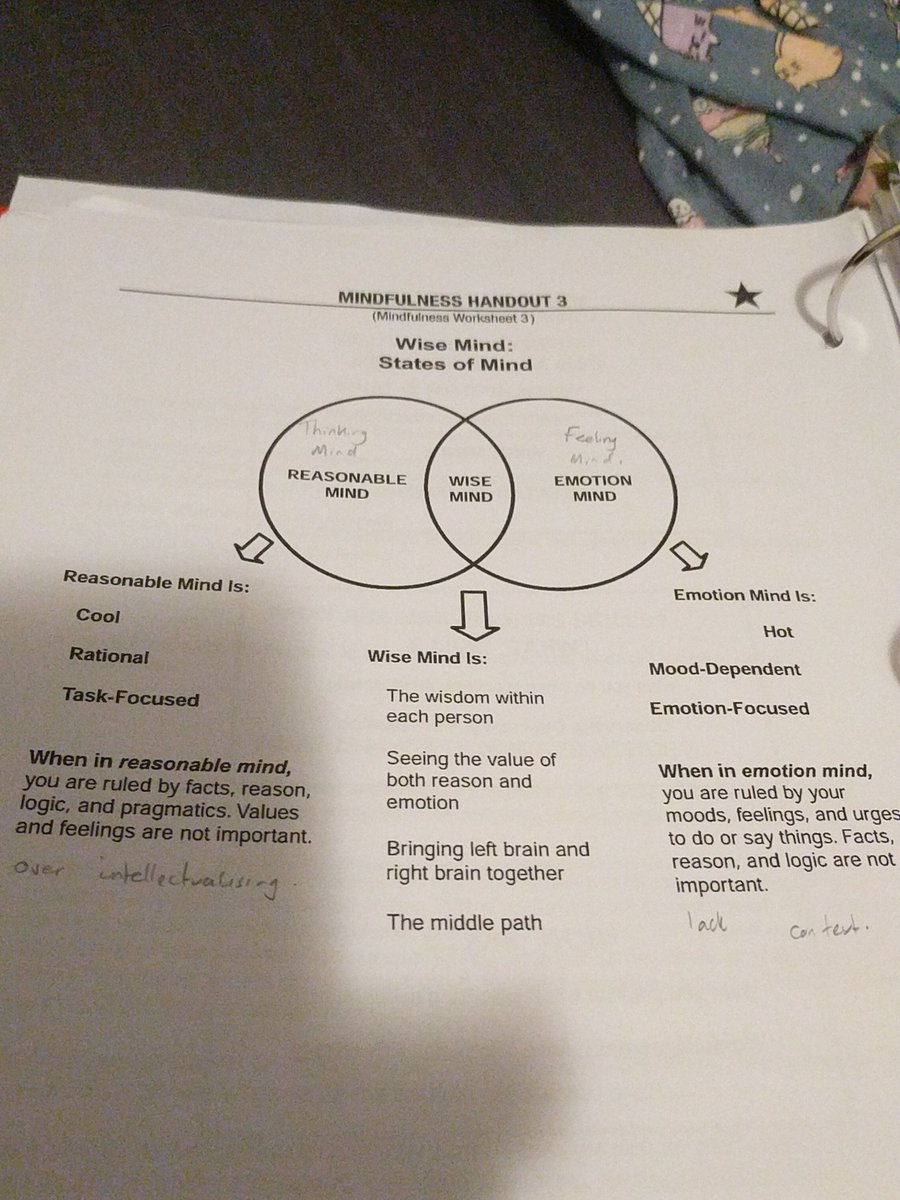
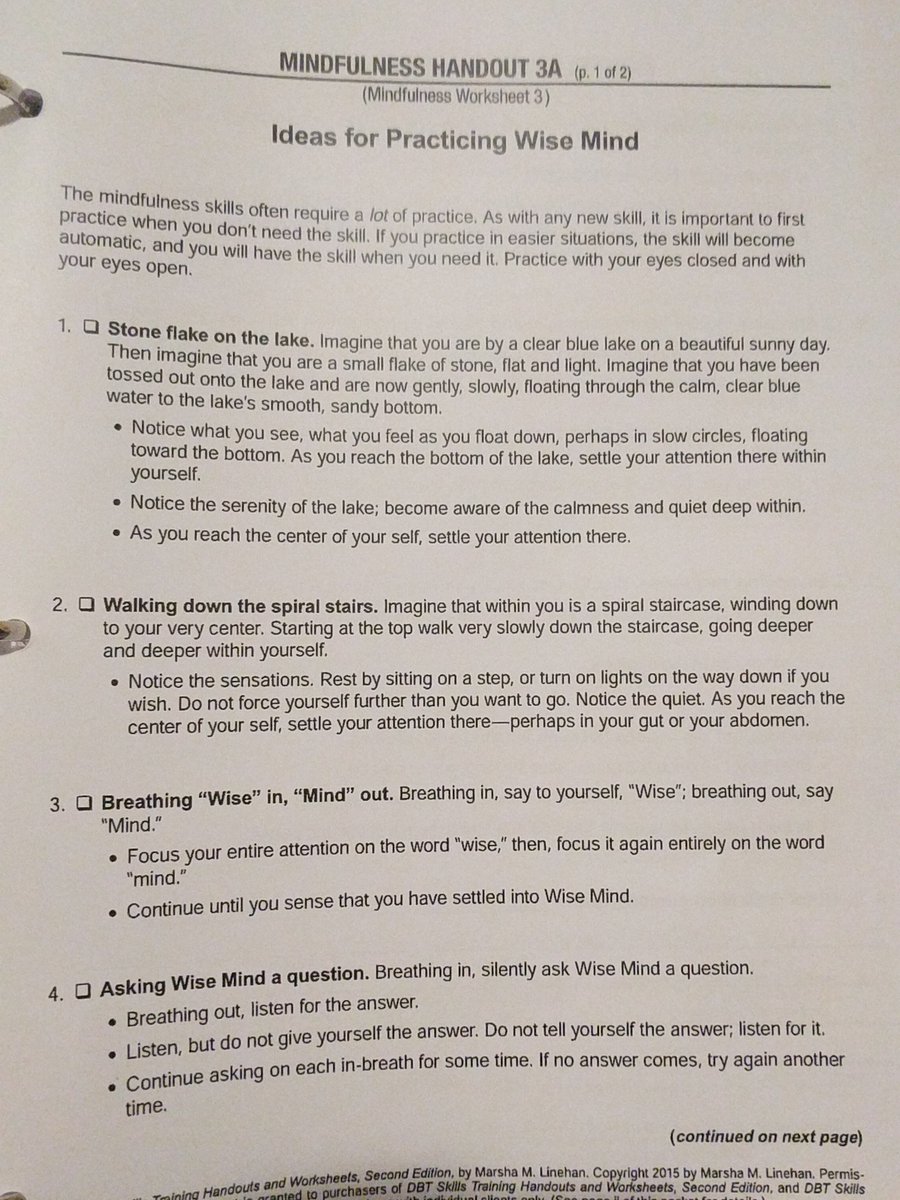 ) is somewhere in the middle." title="Here& #39;s a few ideas for practicing some mindfulness skills. There are plenty out there. Mindfulness is either held up as a cure all, or derided as useless, but the truth (wise mind https://abs.twimg.com/emoji/v2/... draggable="false" alt="😉" title="Zwinkerndes Gesicht" aria-label="Emoji: Zwinkerndes Gesicht">) is somewhere in the middle." class="img-responsive" style="max-width:100%;"/>
) is somewhere in the middle." title="Here& #39;s a few ideas for practicing some mindfulness skills. There are plenty out there. Mindfulness is either held up as a cure all, or derided as useless, but the truth (wise mind https://abs.twimg.com/emoji/v2/... draggable="false" alt="😉" title="Zwinkerndes Gesicht" aria-label="Emoji: Zwinkerndes Gesicht">) is somewhere in the middle." class="img-responsive" style="max-width:100%;"/>

